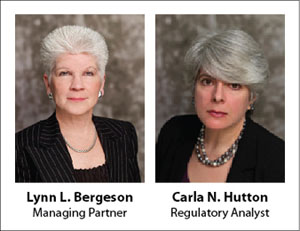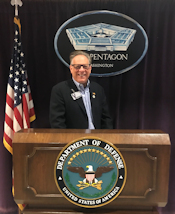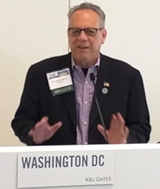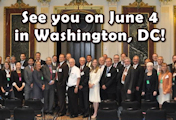EPA Seeks Nominations for Technical Experts to Review New Chemicals Collaborative Research Program
Posted on May 31st, 2022 | No Comments »
I would like to share with you a fabulous opportunity for those of us in the nanotechnology community and chemical industry.
EPA Seeks Nominations for Technical Experts to Review New Chemicals Collaborative Research Program
![]()
Authored by
Lynn L. Bergeson, Managing Partner, Bergeson & Campbell
Carla N. Hutton, Regulatory Analyst, Bergeson & Campbell

On May 27, 2022, the U.S. Environmental Protection Agency (EPA) requested nominations for technical experts to serve as special government employees (SGE) to participate in the review of the New Chemicals Collaborative Research Program with the Board of Scientific Counselors (BOSC), a federal advisory committee to EPA’s Office of Research and Development (ORD). 87 Fed. Reg. 32161. BOSC will be evaluating ORD’s draft Strategic Research Action Plans Fiscal Years 2023-2026 in fall 2022. According to EPA, the fall 2022 meeting will provide a more in-depth evaluation of the Toxic Substances Control Act (TSCA) New Chemicals Collaborative Research Program and associated research plan. EPA states that it will provide an additional draft document that summarizes technical details of the research plan. ORD, in partnership with the Office of Chemical Safety and Pollution Prevention (OCSPP), proposes to develop and implement a multi-year collaborative research program focused on approaches for performing risk assessments on new chemical substances under TSCA.
EPA will consider nominees from industry, business, public and private research institutes or organizations, academia, government (federal, state, local, and Tribal), non-governmental organizations, and other relevant interest areas. EPA notes that it values and welcomes diversity. EPA encourages all qualified candidates to apply regardless of gender, race, disability, or ethnicity.
EPA invites nominations of individuals to serve as SGEs with expertise or extensive experience in the following scientific disciplines and topic areas as they relate to human health and the environment:
– Using data to develop predictive models and use of predictive models in data-poor environments:
- Read across and analogue selection;
- Chemical structures and cheminformatics; and
- Quantitative structure-activity relationships (QSAR);
– Development, implementation, and validation of new approach methods (NAM). Relevant expertise may include:
- Veterinary pathology or comparative physiology for perspective on relevance of laboratory animals for predicting human outcomes; and
- Reference data curation to support validation;
– Computational modeling, bioinformatics, and/or statistics;
– Toxicokinetics, physiologically based pharmacokinetic models (PBPK), and in vitro to in vivo extrapolation (IVIVE);
– Systems biology;
– Human health and ecological risk assessment;
– Exposure modeling and/or assessment, including near-field and far-field sources;
– Knowledge of TSCA; and
– Environmental fate of chemicals.
Nominations are due June 30, 2022. More information on EPA’s Draft Document on “Modernizing the Process and Bringing Innovative Science to Evaluate New Chemicals Under TSCA” is available in our March 14, 2022, memorandum.
——————————————–
On Wednesday, April 20, 2022 I had the opportunity to testify on behalf of the NanoBCA at the EPA’s TSCA New Chemicals Collaborative Research Program Meeting. I would like to share my testimony with our nanotechnology community.
CLICK HERE TO VIEW MY TESTIMONY
——————————————–
In addition to recommending events that are relevant to our nanotechnology community, NanoBCA offers our members the opportunity to participate in our monthly webinars. Our monthly webinars address topics involving the relationship between the science of nanotechnology and Environmental, Health & Safety (EHS), US Legislation, Covid-19, Education, Finance, Manufacturing and Foreign Policy.
Our next NanoBCA webinar is scheduled for Wednesday, June 22nd at 2PM ET.
ACADEMIC/YOUNG PROFESSIONAL MEMBERSHIP $100
START-UP CORPORATION MEMBERSHIP $1,000
One of the benefits of NanoBCA membership is access to our previous webinars with America’s leading scientists and engineers.
We look forward to continuing our legacy relationships and welcoming a new generation of NanoBCA members.
——————————————–
I highly recommend that you take the time to consider this unique opportunity.




